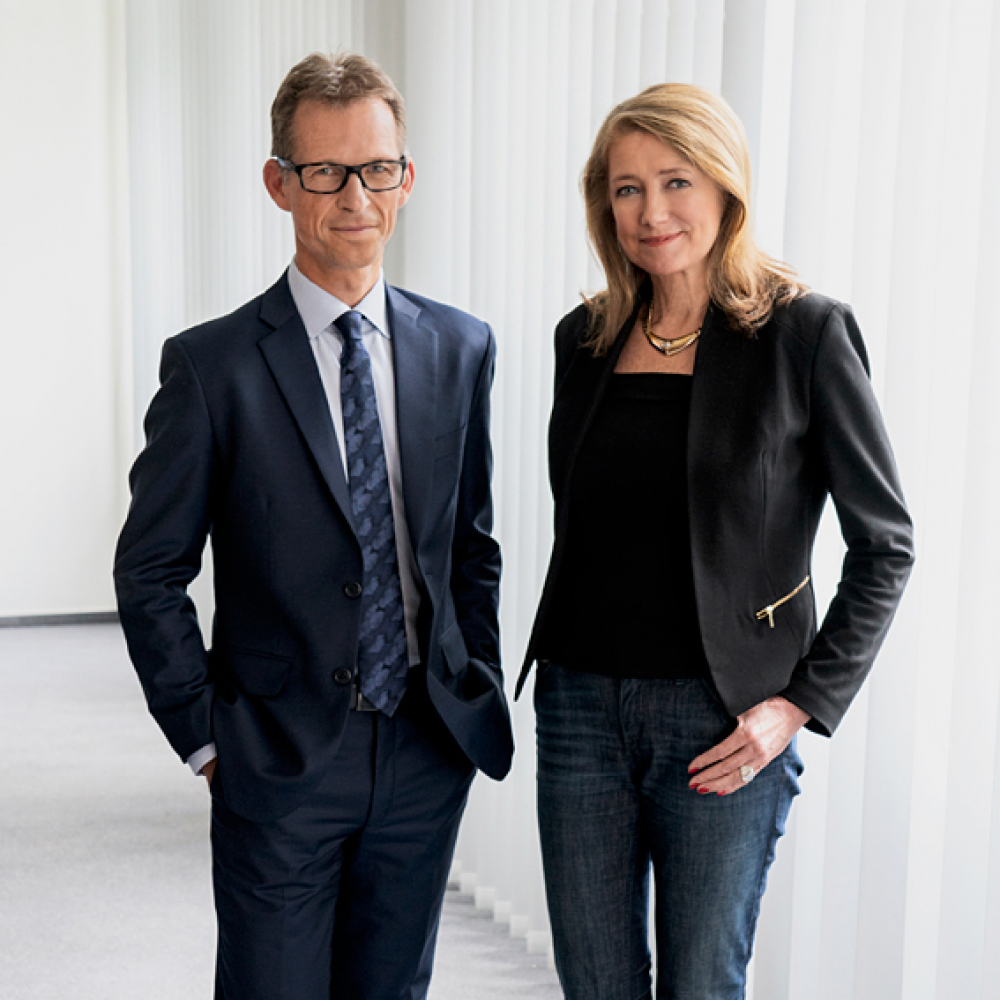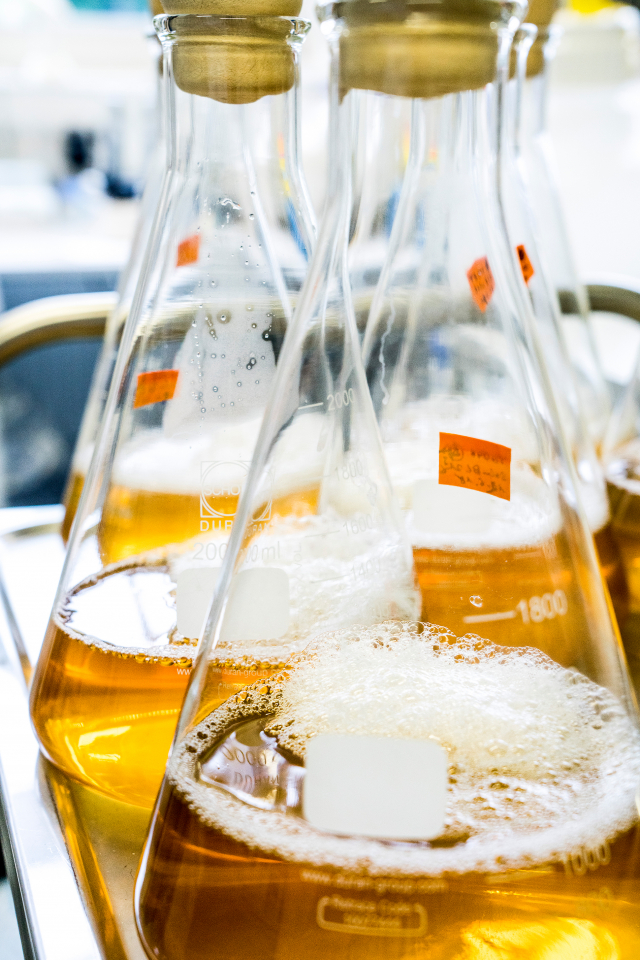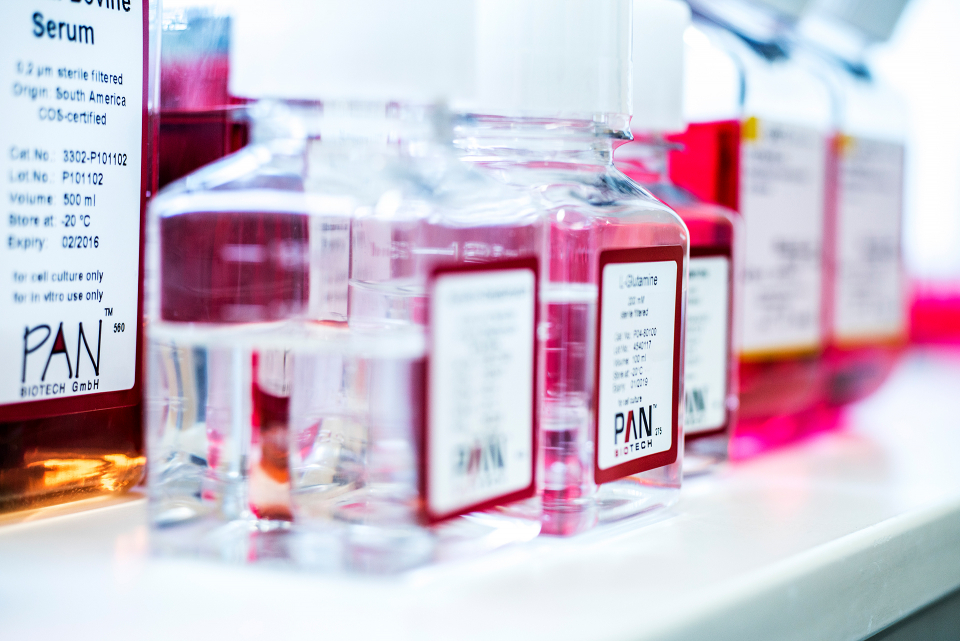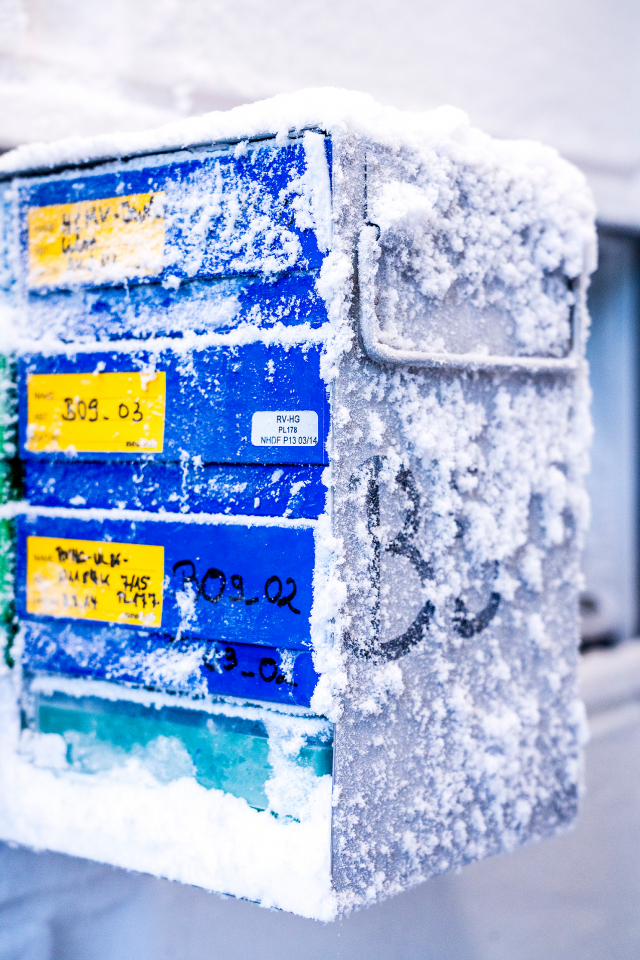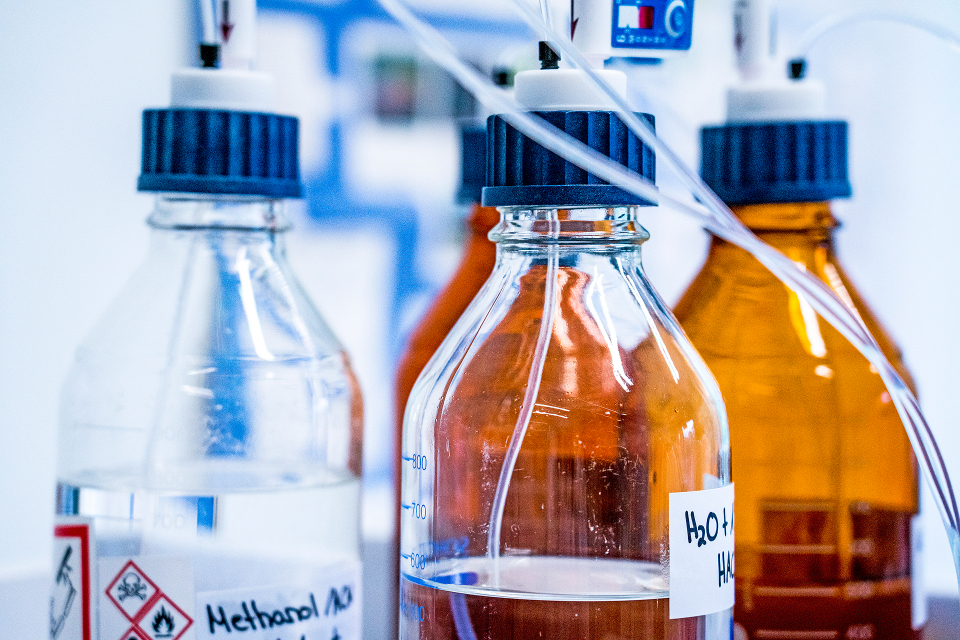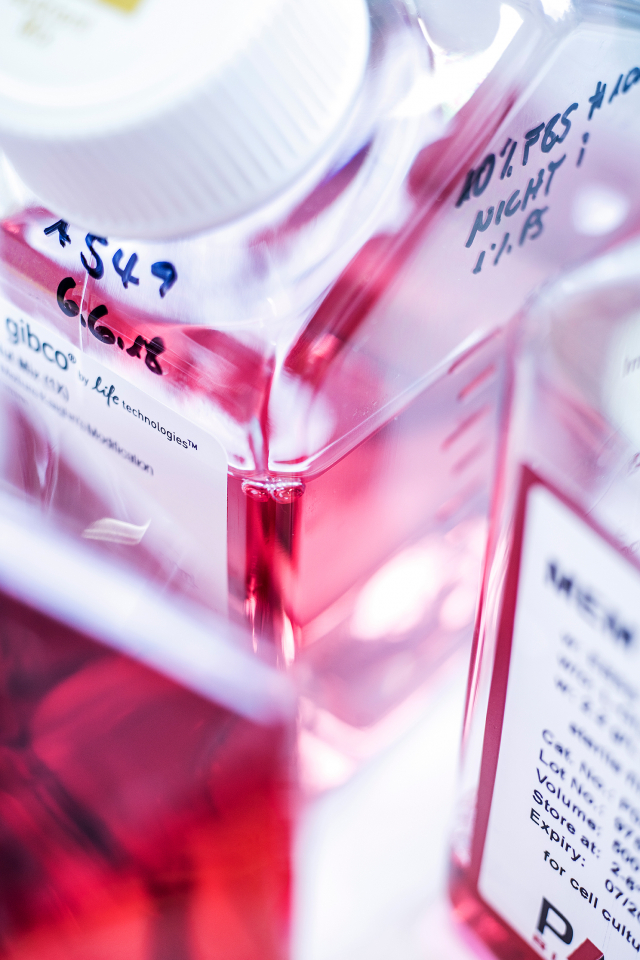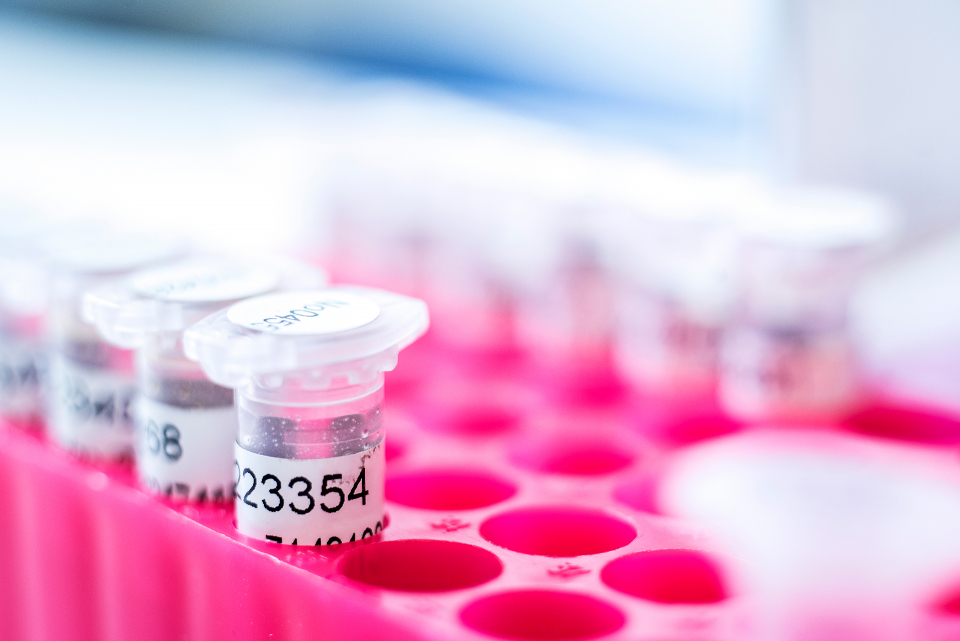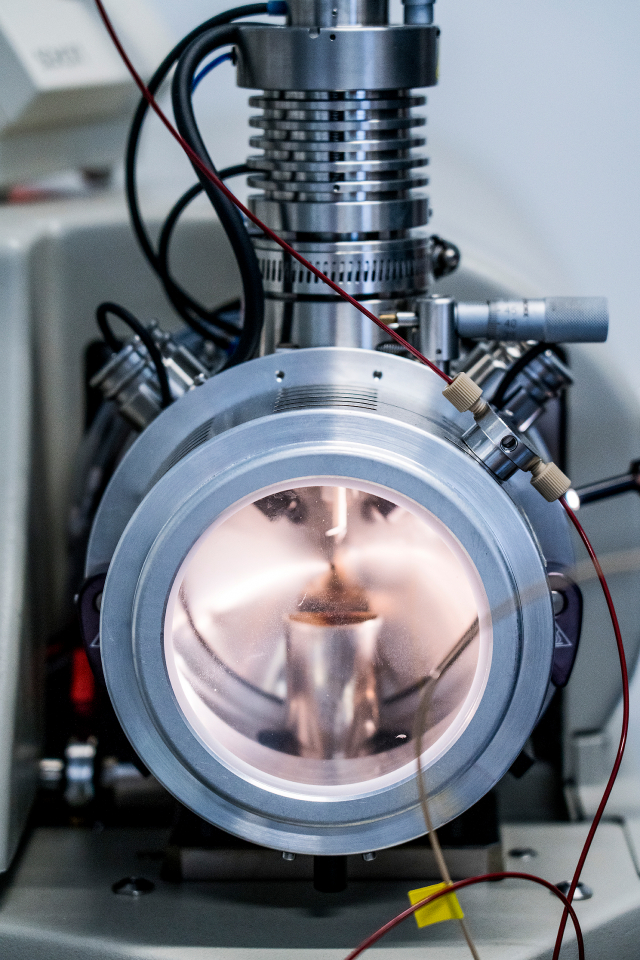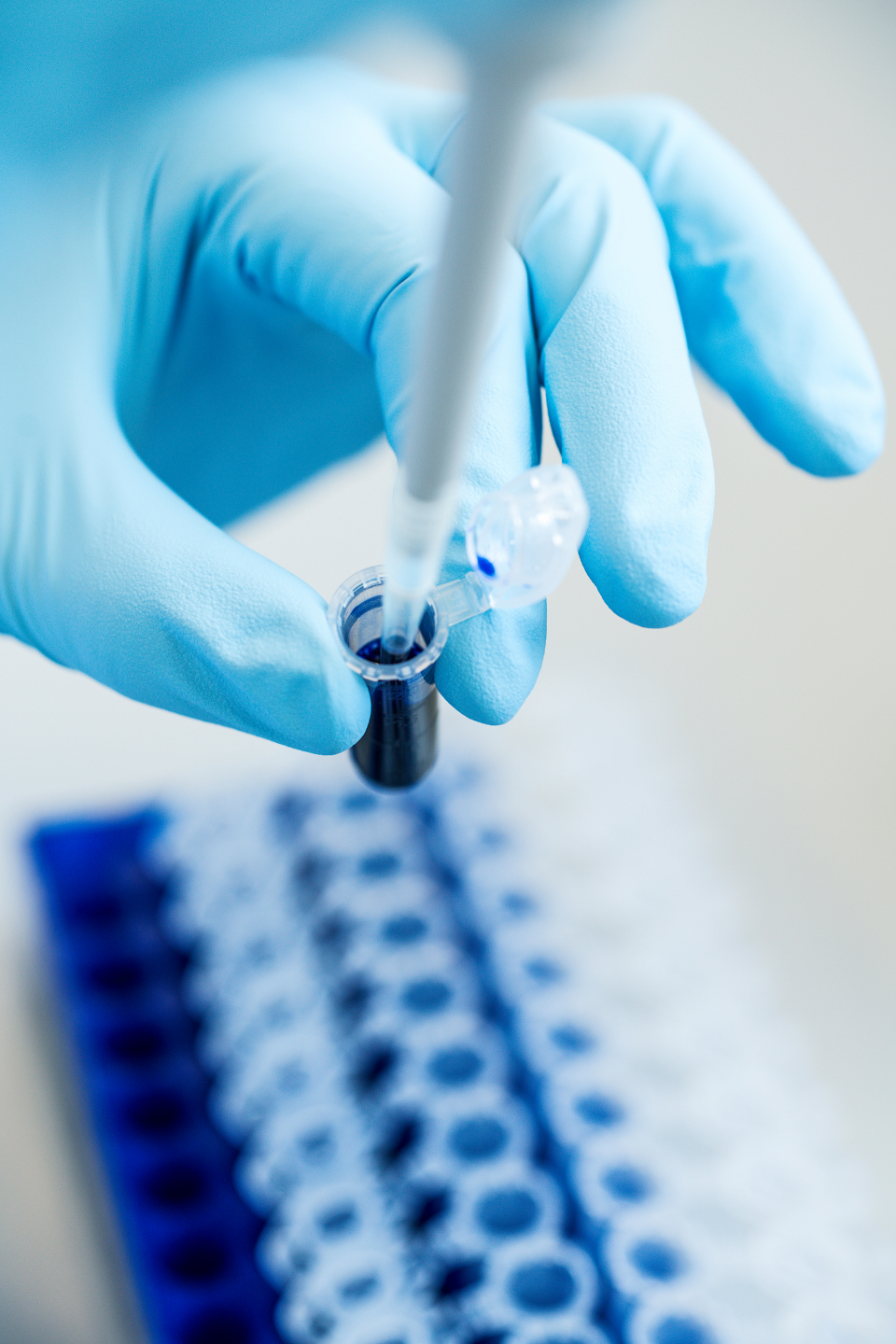
Winner 2018
Schutz bei fehlendem Immunsystem
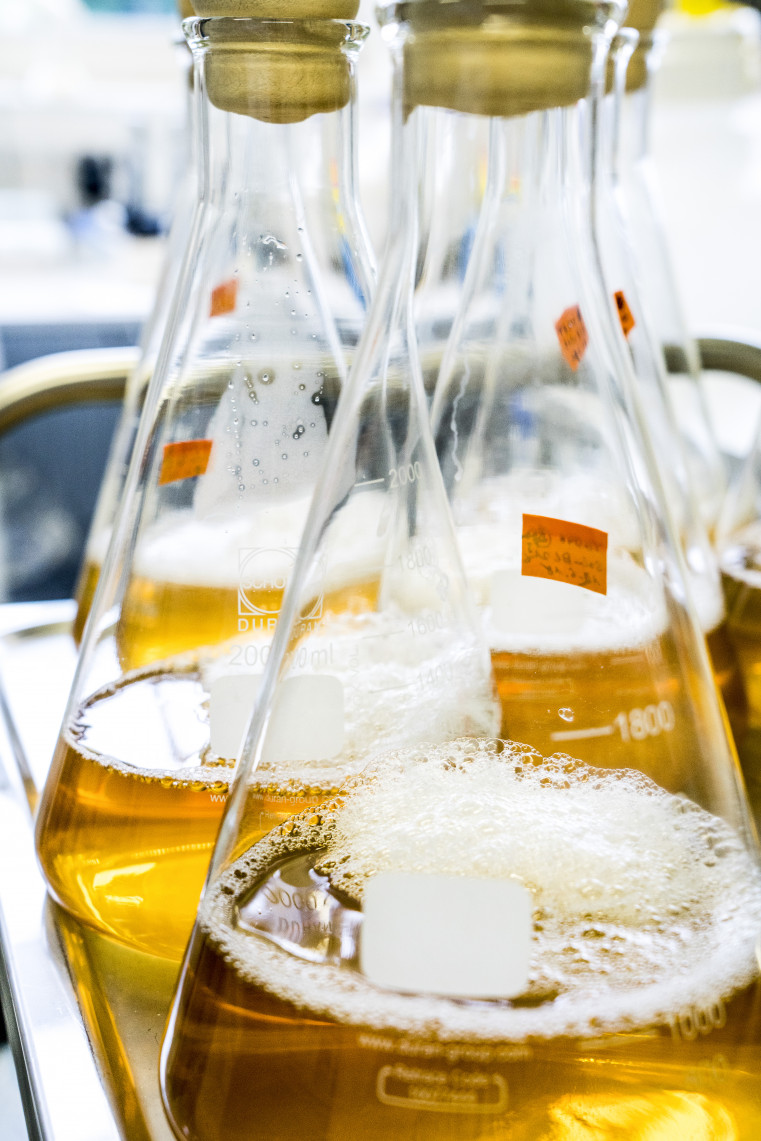
Prof. Dr. rer. nat. Helga Rübsamen-Schaeff and Dr. rer. nat. Holger Zimmermann have succeeded for the first time in locating a novel mechanism of action that effectively protects humans from attacks by the human cytomegalovirus (CMV). In a newly founded company, the nominees developed a drug with the substance that will open up new prospects in transplant medicine. It has recently been approved for patients who need to undergo bone morrow transplants. Helga Rübsamen-Schaeff founded AiCuris Anti-Infective Cures GmbH in 2006 and served as Managing Director until 2015. She is currently a Chair of the Scientific Advisory Board. Holger Zimmermann is CEO of the Wuppertal-based company.
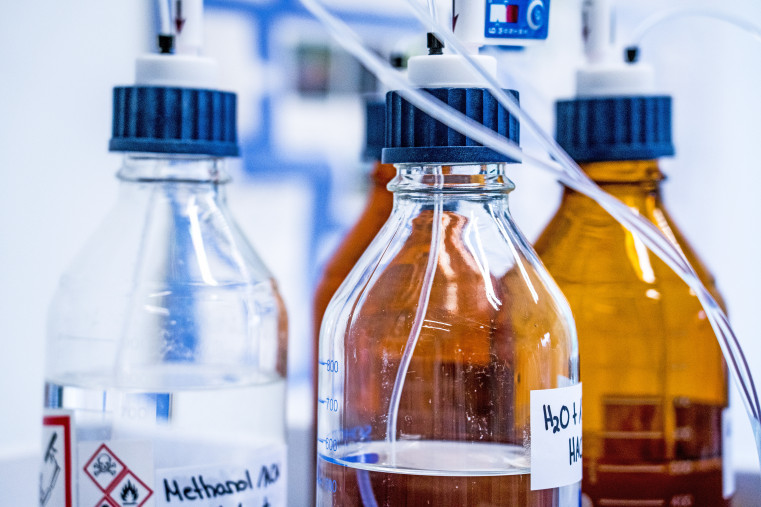
For many leukemia patients who have not been helped by other forms of treatment such as chemotherapy, a bone marrow transplant is often their last hope for recovery. Their own cells or the bone marrow of a suitable donor are transplanted. To ensure that the cancer cells are destroyed, doctors first destroy the recipient's own bone marrow. This effectively switches off the immune defenses for a certain amount of time
more details
Resumes

Prof. Dr. rer. nat. Helga Rübsamen-Schaeff
- Born in Münchberg, Upper Franconia, grew up in Dusseldorf
- 1967 – 1973
- Study of Chemistry and PhD (Dr. rer. nat.), University of Münster
- 1973 – 1979
- Postdoctoral Fellow at the Universities of Cornell Ithaca, NY, USA and Gießen (research in biochemistry and virology). Start of own research group at the University of Cologne
- 1982 – 1987
- Head of the Department of Immunotherapy at the Chemotherapeutical Research Insitute, Georg-Speyer-Haus, Frankfurt
- 1983
- Habilitation, University of Frankfurt (venia legendi for Biochemistry)
- 1983 and 1985
- Sabbatical at Harvard University, Cambridge, MA, USA (Molecular cloning of a human tumor virus, HTLV 1)
- 1987 – 1993
- Scientific and Managing Director of the Chemotherapeutical Research Institute, Georg-Speyer-Haus, Frankfurt (Research on development of tumor cells (oncogenes) and HIV/ AIDS)
- since 1998
- Professor for Biochemistry at the University of Frankfurt
- 1994 – 2000
- Vice President, worldwide Head of Antiviral Research, Bayer AG, continuation of professorship in Frankfurt
- 2001 – 2006
- Senior Vice President, worldwide Head of Anti-Infectives Research Bayer Healthcare, continuation of professorship in Frankfurt
- 1.3.2006
- Foundation of AiCuris GmbH & Co KG
- 2006 – 2015
- CEO of the Biopharma Company AiCuris GmbH & Co. KG, Wuppertal
- since 3/2015
- Chair of the Advisory Board of AiCuris Anti-Infective Cures GmbH
- December 2017
- Market introduction of the first antiviral drug of AiCuris, PrevymisTM, in the US, followed by Germany and Japan in February and May 2018, respectively
Other activities
- since 1972
- Member of the German Chemical Society GdCh (1996-2003 in the Executive Board, 2000 and 2001: Vice President)
- since 1976
- Member of the Society for Virology
- since 1990
- Member of the German AIDS- Society
- 2001 – 2007
- Member of the European Research Advisory Board, EURAB
- 2002 – 2011
- Member in the Jury of „Deutscher Zukunftspreis“: Price by the President of State for Technology and Innovation
- 2003
- Chair of the EU-Expert Commission: "Women in Industrial Research“
- since 2003
- Member in the Competence-Network Stem Cell Research in NRW
- 2003 – 2009
- Member in the Senate of the Fraunhofer Society
- 2003 – 2013
- Member of the University Council of the University of Vienna (Deputy Chair)
- 2006 – 2009
- Member of the „ Research Union“ of the German Ministery for Research and Education
- since 2014
- Member in the Scientific Panel of Health of the EU Commission
- since 2014
- Member in the Board of Partners and Supervisory Board of E. Merck KG and Merck KGaA, respectively, Chair of the Research Committee of E. Merck KG
- since 2015
- Member in the Supervisory Board of 4SC
- since 2015
- Member in the Supervisory Board of the University Clinics of Bonn
Honors & Awards
- Price of the University of Münster (for PhD thesis)
Stipend by Max Kade Foundation for postdoctoral Research at Cornell University
Winnacker Stipend
German Federal Cross of Merit, Class I
Mestemacher Price: Manager of the Year 2004
For AiCuris: Deloitte Allicence Breakthrough Alliance Award 2013
For AiCuris: Step Award 2013 by FAZ
IUPAC: Distinguished Woman in Chemistry or Chemical Engineering Award in 2015
German Chemical Society: Honorary Membership 2017
Member of the German National Academy of Sciences, Leopoldina, 2018
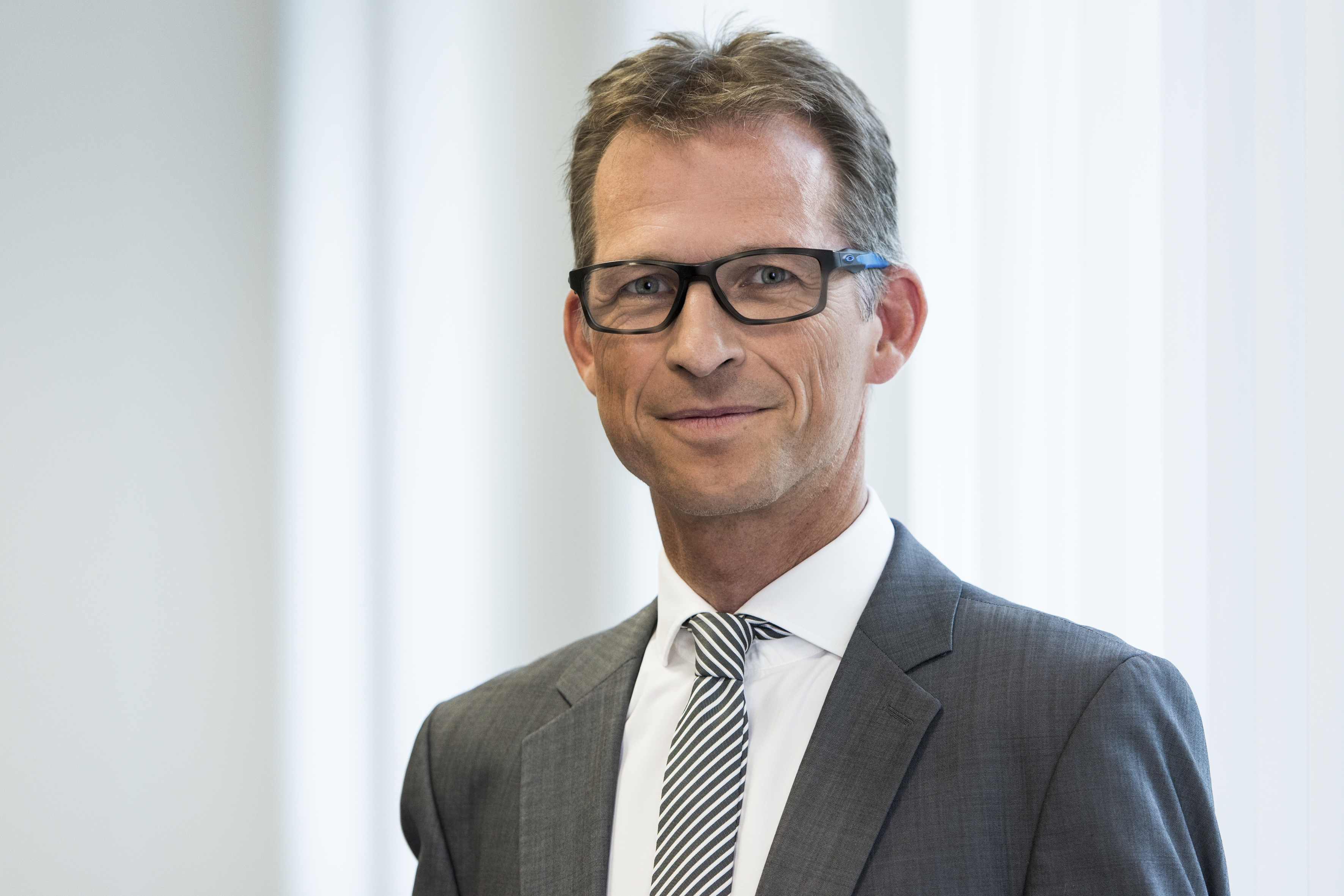
Dr. rer. nat. Holger Zimmermann
- Dec. 4,1968
- Born in Gummersbach, NRW, Germany
- 1976 – 1980
- Primary school in Gummersbach-Bernberg
- 1980 – 1988
- Grammar school, Gymnasium Moltkestraße in Gummersbach
- 1988 – 1989
- Military service, Fallschirmjägerbataillon Iserlohn
- 1989 – 1994
- Study of Biology at the University of Cologne,
Diploma thesis at the Institute of Virology (Head: Prof. H.J. Eggers): Characterisation of a Rhodanine-resistant Echovirus 12 strain
- 1994 – 1996
- PhD thesis at the Institute of Virology, University of Cologne
Awardee of the Deutschen Vereinigung zur Bekämpfung der Viruskrankheiten e.V.
Thesis: Molecular characterisation of Echovirus 9 variants - 1997 – 2000
- Post-doctoral fellow at the Institute for Molecular and Cell Biology / National University of Singapore
Research Project: Interactions of the viral oncoprotein E6 of high-risk papillomaviruses - 1999
- Thames Business School Singapore (Advanced Diploma in Business Administration)
Laboratory Head Virology, BayerHealthCare AG, Co-Inventor of Letermovir
Strategic Project Leader for Cytomegalovirus, BayerHealthCare AG - 2000 – 2006
- Head of Virology, AiCuris Anti-infective Cures GmbH
- 2003 – 2006
- Chief Scientific Officer, AiCuris Anti-infective Cures GmbH
- 2006 – 2008
- Member of the executive board, AiCuris Anti-infective Cures GmbH
- 2009 – 2015
- Chief Executive Officer, AiCuris Anti-infective Cures GmbH
- since 2013
- Study of Biology at the University of Cologne,
Diploma thesis at the Institute of Virology (Head: Prof. H.J. Eggers): Characterisation of a Rhodanine-resistant Echovirus 12 strain - since 2015
- PhD thesis at the Institute of Virology, University of Cologne
Awardee of the Deutschen Vereinigung zur Bekämpfung der Viruskrankheiten e.V.
Thesis: Molecular characterisation of Echovirus 9 variants
Other activities
- Member of the Membership Committee of the International Society for Antiviral Research
Member of the committee Antivirale Therapie der Deutschen Vereinigung zur Bekämpfung der Viruskrankheiten e.V. and Gesellschaft für Virologie e.V.br />
Member of the board of BioDeutschland e.V.
Publications and Patents
- Named inventor in more than 25 patent applications
Honors & Awards
- For AiCuris: Deloitte Allicence Breakthrough Alliance Award 2013
For AiCuris: Step Award 2013 by FAZ
Contact
Spokesperson
Prof. Dr. Helga Rübsamen-Schaeff
AiCuris Anti-infective Cures GmbH
Friedrich-Ebert-Str. 475 / Geb. 302
42117 Wuppertal
Phone: +49 (0) 202 / 31 76 31 176
E-Mail: helga.ruebsamen-schaeff@science-life.de
Press
Katja Woestenhemke
AiCuris Anti-infective Cures GmbH
Friedrich-Ebert-Str. 475 / Geb. 302
42117 Wuppertal
Phone: +49 (0) 202 / 31 76 31 176
Fax: +49 (0) 202 / 31 76 31 177
Mobile: +49 (0) 170 / 45 43 938
E-Mail: katja.woestenhemke@aicuris.com
www.aicuris.com
A description provided by the institutes and companies regarding their nominated projects
In a globalized world with air travel, mass tourism, migration, mass transport of goods and animals research into the treatment and control of infectious diseases is particularly important for the security of all nations. Moreover, an ageing society, certain diseases and increasingly complex and demanding therapeutic procedures have led to increasing numbers of individuals with weaker immune systems. These factors and more, give infectious agents an unprecedented possibility for spread and development. In addition, there is resistance generation to anti-infective drugs leading to poorer outcomes and difficulties in managing these patients. As many hospital infections have become resistant against more than one drug, there is a clear danger that bacterial infections cannot be controlled in the future.
The mission of AiCuris Anti-Infective Cures (www.aicuris.com) is to develop effective drugs against the infections of the 21st century. The company was founded in 2006 by Prof. Helga Rübsamen-Schaeff as a spin-out from Bayer. Since 2015, Dr. Holger Zimmermann has been the CEO of AiCuris. Main investors in AiCuris are the Strüngmann brothers, the former owners of Hexal. AiCuris presently has 65 employees and is located in Wuppertal, Germany.
One of the viral infections in AiCuris´ focus is the human cytomegalovirus (CMV). It belongs to the group of herpesviruses and is widely spread in the human population. CMV infects individuals of all ages and remains in the body lifelong as a latent infection. In industrialized nations >50% of the population are infected, in emerging countries 90-100% of inhabitants are carriers of the virus. If an individual with a primary infection has an intact immune system, symptoms rarely occur after infection. However, if there is a weak immune system, CMV can reactivate and lead to severe, often life-threatening infections of a variety of organs like the intestine, the lung or the eyes. Another susceptible group are the fetuses of pregnant women and newborns infected at birth, who could develop congenital CMV.
Immediately after transplantation, recipients of allogeneic hematopoietic stem cells (bone marrow) have little to no immune protection. The new cells require time to engraft and to build up a new immunity. Until this new immune protection has been established after transplantation, patients are very vulnerable to all pathogens. If such patients are carriers of CMV, there is a high risk that the virus, which is already in the body, reactivates, spreads and eventually could kill the patient. An antiviral CMV prophylaxis from day 1 onwards after transplantation would be required to protect these very sick individuals, who are in need of a stem cell transplantation (mostly cancer patients with leukaemia, lymphoma).
However, with the available anti-CMV drugs, prophylaxis was impossible, since all have significant side-effects including bone-marrow toxicity or kidney toxicity. Hence, physicians were left with monitoring whether CMV would reappear and then were forced to use these problematic compounds in the hope of bringing the virus back under control. Unfortunately, at this stage, this is not always possible and it is known that once the virus can be measured in the blood, the outcome for the patient is poorer.
In order to identify a drug, which would - for the first time - allow an efficacious prophylaxis under these circumstances, Prof. Rübsamen-Schaeff and her team at Bayer looked for completely new approaches for the generation of CMV drugs. In this effort, they evaluated the viral terminase enzyme as a potential suitable viral target, but it took two failures of terminase inhibitors and the learnings from them, until letermovir was discovered. Shortly after this discovery, however, Bayer decided to no longer invest in infectious diseases and to stop all activities. Prof. Rübsamen-Schaeff received the offer that Bayer would transfer the research results from 13 projects, including letermovir, into a new company to be founded, provided she was able to find appropriate investors for this new entity. Fortunately, this was possible and on March 1st 2006, AiCuris was founded, with the support of private investors, the Strüngmann brothers mentioned above and with 22 former Bayer employees. In the following years, the company was built up and the projects in AiCuris´ pipeline, which had been exclusively preclinical, when Bayer made the decision to stop infectious disease work were further developed in the clinics, including letermovir. So, in order to bring letermovir to the market and to the patients in need, not only the scientific hurdles, but also the challenges to find the funding and support required to found a new company, building and financing it and executing the clinical development had to be overcome.
Letermovir has been marketed since December 2017 as PrevymisTM. It belongs to a new class of non-nucleosidic CMV-inhibitors (3,4-Dihydroquinazolines) and blocks CMV by targeting the viral terminase complex. Letermovir, therefore, is not an extension of existing drugs, but represents a radically new concept, both with respect to the target, and also to the chemical class. This also means that there is no cross-resistance to all approved anti-CMV drugs. PrevymisTM is thus active against all CMV viruses, which have become resistant to the so far available CMV-polymerase-inhibitors.
AiCuris developed letermovir until the end of phase II, when in stem cell recipients, a dose-dependent protection from CMV, with good safety and tolerability could be shown. In 2012 AiCuris granted a worldwide license to Merck & Co (MSD) to further develop and market letermovir. The Phase II results by AiCuris were confirmed in the pivotal phase III study conducted by Merck & Co, leading to the market approval of PrevymisTM. This study further demonstrated that protection from CMV resulted in a lower all-cause mortality for the treated patients. To-date, PrevymisTM is the only drug, which can be used prophylactically for these severely ill patients from day 1 onwards after bone marrow transplantation. All developments by competitors failed (including two different drugs and a vaccine approach), demonstrating the difficulty in developing a new drug to protect patients against this aggressive virus in the absence of an adequate immune system.
PREVYMIS® ist heute das einzige Medikament, das bei diesen schwerstkranken Patienten nach Knochenmark-Transplantation prophylaktisch vom Tag 1 an gegeben werden kann. Alle Konkurrenzentwicklungen (zwei unterschiedliche Medikamente und ein Ansatz, einen Impfstoff zu entwickeln) scheiterten für diese Indikation und belegen die prinzipielle Schwierigkeit, Menschen ohne Immunsystem gegen dieses aggressive Virus zu schützen.
In the CMV field, PrevymisTM is the first new drug after 15 years and approved for the prophylaxis against CMV infections. While CMV-seropositive recipients of stem cells are the current initial beneficiaries of this drug, it should be emphasised that CMV is also a significant problem for other patient groups with a compromised immune system. Merck & Co is presently conducting a prophylaxis study in kidney transplant patients. Apart from the kidney, this therapy could also eventually prove to be useful for recipients of other solid organs, for whom the danger of CMV-reactivation exists.
CMV is a major pathogen for newborn babies, who have been infected while in the womb of their mothers or during birth. To-day, CMV is the most common virus infection in the newborn. It can lead to a range of problems including severe neurological abnormalities or even to death. Congenital CMV infection is one of the leading causes of hearing loss and neurologic disabilities in children worldwide.
Further groups of patients that may benefit from treating CMV, and who considered by several research groups, include patients with HIV/AIDS, patients with certain cancers and autoimmune diseases, or patients in intensive care.
Based on the license agreement, AiCuris has meanwhile received € 260 mio in milestone payments from Merck & Co (eligible to a total of € 332 mio) and receives royalties on worldwide sales. A few months after the market introduction into the first countries, sales of PrevymisTM amount to more than € 5 mio per month. Additional market entries are expected in the next months. Analysts assume peak sales per year in the high three-digit million € range. Provided the study in kidney recipients is positive, this market will open up as well.
For AiCuris, as a young company, it is a great success that a first, highly innovative drug from its pipeline has reached the market. At the same time, it is a very positive signal for the German Biotech industry. In addition to CMV drugs, the current pipeline of AiCuris contains drugs against herpes simplex and hepatitis B virus and a research project on Adenoviruses. In bacteriology, AiCuris focuses on novel treatment options against the much dreaded, (multi)-resistant bacterial infections in hospitals.
Based on the successful market introduction of PrevymisTM, AiCuris is now in a position to expand its pipeline of drug candidates against severe infections and to further develop and grow its business with highly qualified and sustainable workplaces.
The right to nominate outstanding achievements for the Deutscher Zukunftspreis is incumbent on leading German institutions in science and industry as well as foundations.
The project "Protecting compromised immune systems - the life-saving innovation that fights dangerous viruses" was submitted by “Bundesverband der Deutschen Industrie e.V. (BDI)” and “Max-Planck-Gesellschaft zur Förderung der Wissenschaften e.V.”.
German President Frank-Walter Steinmeier will award the 22st Deutscher Zukunftspreis for the year 2018 to one of the three nominated teams on November 28, 2018.
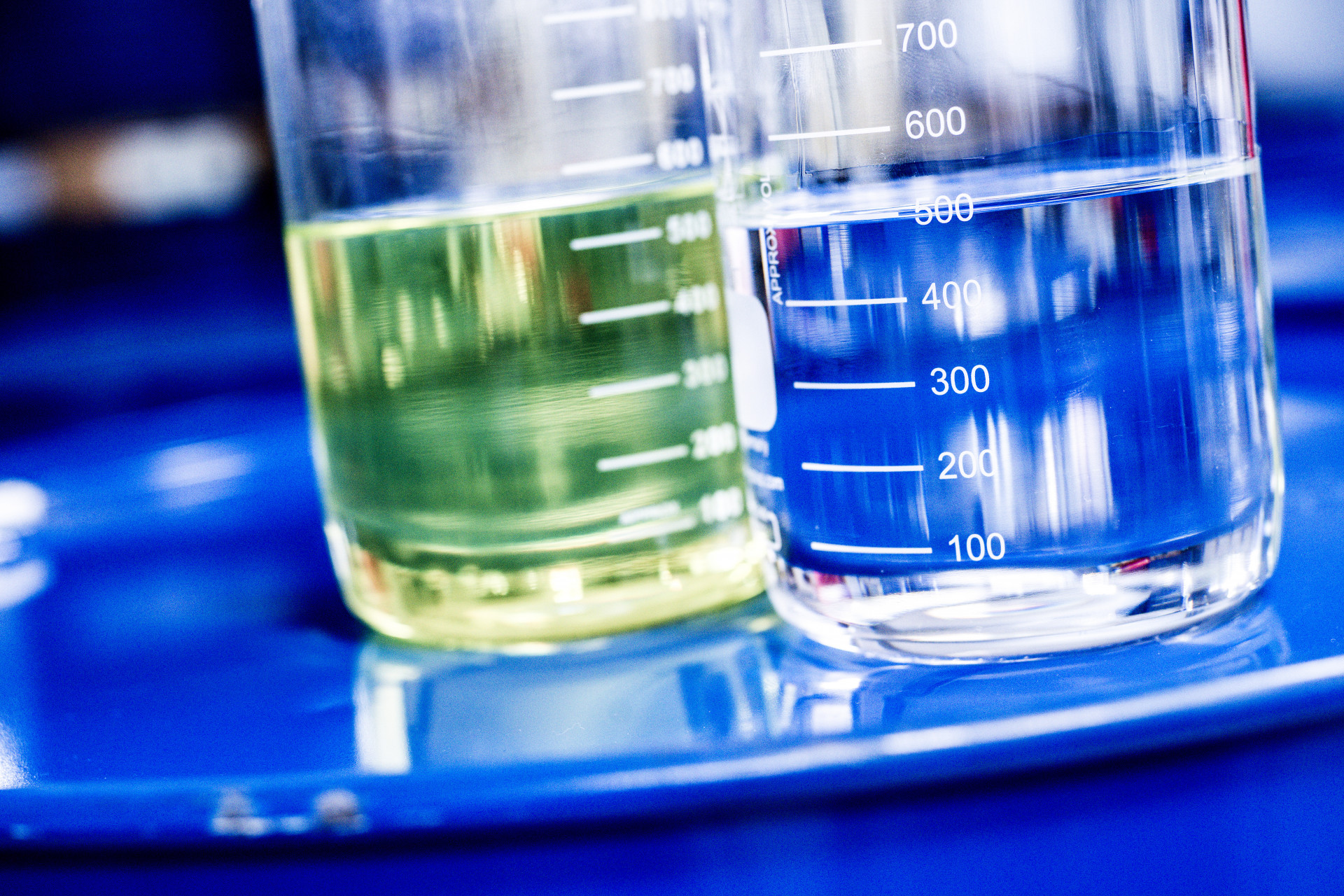

 Gebärdensprache
Gebärdensprache
 Leichte Sprache
Leichte Sprache


